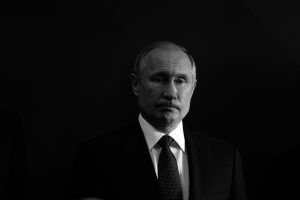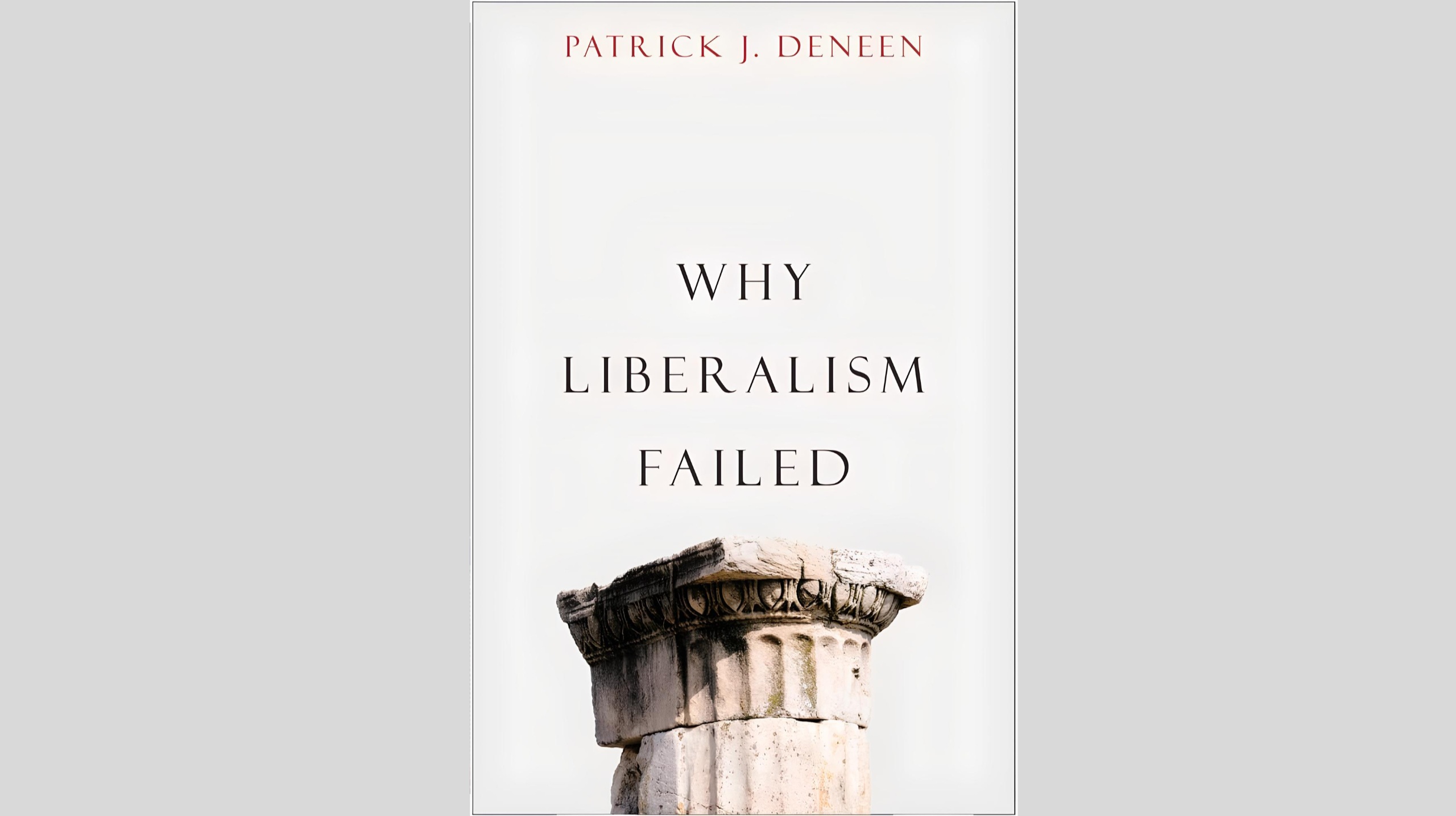
A better system will not automatically ensure a better life. In fact, the opposite is true: only by creating a better life can a better system be developed.
January 01, 2024

Political scientist Patrick J. Deneen garnered attention across the political spectrum with his book challenging liberalism in just nine chapters. The book sparked discussions in academic circles and captured the interest of government officials. When you pick up the book and consider the page count and the scope of the challenge, you wonder how Deneen managed such a feat with so few pages. First and foremost, you are curious about which liberalism Deneen addresses and which facets of liberalism he includes in his framework. In the continuation of the text, we will delve into the methodological impossibility in tackling the first question. As for the second question, Deneen gathers his arguments around political, economic, cultural, and technological domains, but the focus is not evenly distributed.
Arguably, the most problematic aspect of the book is the author’s insistence on neutrality regarding the book’s position. While not explicitly stating this as a social scientist, Deneen laments receiving criticism from both sides. He addresses the criticisms he received from both the right and the left with additions he made to the book later on. He claims that what sets him apart from the right is the divergence on the issue of economic inequality. What distinguishes him from the left, he says, is the cultural and political liberalism of the left. However, the book is notably culturally critical.
Deneen attributes the resilience of liberalism against other ideologies to what he calls a “successful failure.” Essentially, liberalism has failed to fulfill its promises as an ideology, yet it has emerged victorious from the ideological battles of the past century, overshadowing both fascism and communism in history. On the surface, this may appear contradictory and worth investigating, but Deneen argues that the internal success of an ideology does not necessarily correlate with its competition with other paradigms.
Deneen focuses on this disconnection and incongruity, aiming to expose the hypocrisy within liberalism. The provocative essence of his argument lies in the assertion: “You think liberalism has failed, but you don’t know the true face of liberalism.” In other words, liberalism has marketed itself with promises of equality and freedom, yet the foundational principles of the liberal imagination hinder the realization of these promises. The conclusion drawn is that liberalism is, in fact, successful, as its presuppositions and internal contradictions have turned it into a self-destructive ideology. This may sound familiar, as readers might expect inner criticisms to surface after such an introduction, however, the book frequently presents moralistic arguments.
The use of these moral arguments serves another purpose: shifting the discussion beyond the liberal framework and demonstrating how liberalism occupies the domain of truth. Consequently, there are many arguments in the sections critiquing culture that run parallel to Critical Theory. Although this method is both aggressive and effective on the average reader, its downside is the tendency to overlook conservatism on issues such as women’s liberation, individualization, and gender. An even more significant problem is Deneen’s forced essentialism while “revealing the true face” of liberalism. For instance, he acknowledges that liberalism creates autonomous individuals while also describing these individuals as lonely, insecure, fearful, and powerless.
The ultimate question seems to be whether we truly want to be autonomous individuals, questioning the merit of creating autonomous individuals. Before arriving at this question, numerous mediating and constructive questions can be considered. Despite Deneen’s sharp stance in proposing solutions, an alternative approach could involve exploring areas where individualism intersects with community instead of denying the assumptions of liberalism. This would involve contemplating how to fill the gaps hindering the smooth transition of theory into practice and evaluating the usefulness and debatability of such questions.
If there is a reckoning with cultural liberalization, discussions should encompass what liberalism has gained as well as lost, and the potential costs of our choices should be weighed. While Deneen appreciates the progressive aspects of liberalism, his emphasis remains on the gap between ideal and reality. Liberalism has struggled to actualize its ideals, and Deneen suggests that these ideals are inherently problematic. As readers progress through the book, it becomes apparent that Deneen’s criticism of liberal ideals is not unique to liberalism but extends to meta-theories in general.
If it were not so, he could have proposed a new conceptual framework for liberalism or simply suggested that we need to cancel liberalism. However, he does none of these. Instead, he proposes an anti-globalist post-liberal experimental field. In contrast to liberalism’s seemingly pluralistic cultural monoculturalism, he advocates for local forms of resistance and a focus on practicality against the grand ideal human projects of meta-theories. On the other hand, he does not suggest trying to treat liberalism, a proposal that is understandable because he criticizes it by referring to the methods of meta-theories. The point that makes his criticism striking is also a point that weakens his criticism a bit. This point seems to be his direct criticism of liberalism’s promises to create a free and self-constructing human. At first glance, with this less emphasized criticism, he appears conservative and traditional. However, the only problem is not that liberalism has a “false anthropology” but that it tries to shape the world as the best among ideologies with false anthropology. This is exactly what leads us to position Deneen in an anti-globalist perspective. When we combine the position signals the author gives throughout the book, we end up with a mixture that is far from academic moderation, advocating for an anti-globalist and illiberal democracy. Another reason for this attitudinal confusion is the difficulty of historical contextualization. When we say democracy, we often refer to the concept of liberal democracy. Although there is an ongoing debate about illiberal democracy, there are question marks about whether democracy can exist without liberalism. Therefore, Deneen criticizes not only liberalism but also, necessarily, modernity and democracy. This interweaving makes it difficult for us as readers to focus on liberalism and makes it difficult for us to be convinced.
Liberalism heralds that it liberates people from external determinisms. Your surname should not determine you and your destiny; humans have the power to define themselves. Deneen appreciates the potential of individuals to determine their own destiny and finds such a structure fairer when compared to aristocracy. However, the existence of this potential does not guarantee the outcome. To reach what is good for oneself, a person must make correct decisions through the accumulation of knowledge. Liberalism, in theory, believes that the natural state of humans can lead them to such an outcome, but when this idea is put into practice, the potential of individuals to determine themselves is constrained by various external factors.
Another problem is that liberalism undermines the trust of citizens, thereby damaging the legitimacy of governance. After all, the proposition that individuals act in the direction of their own interests is also valid for state officials. Government officials do not set aside their personal interests while in office and continue to pursue their own interests. This situation greatly erodes the trust of citizens in government officials. After all, there is no natural reason for leaders to give up their own interests and advocate for the common good. This is precisely why issues related to the environment and natural resources are often seen as a third-rate area of discussion. Liberalism certainly does not prevent the discussion of these issues or argue that they should not be raised. The problem is that liberalism does not see a commitment to the common good as part of human nature. Such a conception of a self-interested human does not motivate people to design their actions and policies in the direction of the common good. To get people to take action on environmental issues, you have to tell them that they will run out of water within 10 years. One reason for this is the disappearance of intergenerational responsibility.
One of the book’s strongest arguments is that it suggests the cultural transformation brought about by liberalism has elevated attitudes that hinder democratization. This issue could have been more centrally positioned in the book. Democracy requires mutual tolerance and even sacrifice. Individualistic culture distances people from the diligence necessary for sustaining democracy. Mutual tolerance has greatly diminished because individuals have turned into spoiled children constantly demanding their rights from the paternalistic state. And yes, contrary to what liberalism promises, the citizen’s relationship with the state has become symbiotic. This is due to the insertion of secular state laws into the space previously occupied by tradition. As this integration weakens communal ties among citizens, the liberal state must continuously wield its magic wand over citizens to “hold together” society. Since tradition’s legitimacy as a societal determinant has disappeared, society is now formed not on the basis of community membership but on the agreements individuals make with the state. Deneen describes the liberal society as “an accidental aggregate of disconnected selves.” Ultimately, we witness the criticism of liberal democracy presented on the basis of liberal culture. Deneen does not hesitate to take a step further and states that the freedoms promised by liberalism have regressed due to the expansionist state.
The first point that needs clarification here is the difference between the function and scope of the state. Law has necessarily filled the spaces vacated by tradition and has certainly expanded in scope. On the other hand, state capacity does not necessitate intervention, and what distinguishes the liberal state is its reluctance to use resources for enforcement despite its capacity. This reluctance is more than a strategic choice; it emphasizes a principled and continuous stance. I would like to refer to Michael Mann’s concepts here. Despotic power is a state’s capacity to make decisions without consultation. On the other hand, infrastructural power points to a state’s implementation capacity. If, when stating that the liberal state permeates every aspect of life, we mean that its despotic power has not increased, and only its infrastructural power has increased, can we say that this is a negative situation?
In many chapters of the book, cultural critiques are presented, and it is not possible to deny the accuracy of these cultural criticisms. One of them is in the section related to technology, where it is discussed how technological progress contributes to the unraveling of traditional institutions like the family. Deneen emphasizes not how tools have transformed modern humans, but rather the purposes for which the liberal project uses these tools. More precisely, expressing it in a non-conspiratorial language, it is crucial to consider on which mental plane human inventions are used. Deneen reminds us that tools do not inherently possess a moral quality. On the other hand, the solution proposed by Deneen, which is to use tools within a virtuous framework, is both humane and ethical.
Whose virtues should we adopt, and which virtues should we prioritize? Perhaps more importantly, which virtues should we exclude while making this prioritization? These are not easy questions to answer, and unfortunately, we do not live in a non-global world where we can navigate through the issues by producing local solutions. In other words, Deneen does not provide a satisfying roadmap for solutions. He does not claim to do so, and he is aware of this aspect in his work. However, even the effort to make us aware of the high costs of liberalism is commendable on its own, although, as readers, we may remain unclear about the direction of the ideal post-liberal world. Perhaps, as Deneen suggests, starting with practical steps and breaking free from theory dependency could be a good beginning.
A curated seletion of FA’s must-read stories.
Written By: DILARA SAHIN
Written By: RIZWAN RAFI TOGOO
Written By: ERIC SONG
Written By: BATUHAN GUNES
Written By: E. ERDEN
Written By: SHOHREH POOLAB
Written By: ALEYNA TASTAN
Written By: CIHAN KAAN GAZI

E. Erden recently completed her studies at Bogazici University, yet she remains filled with a passion for research and writing. Discover her articles on herMedium blog: https://medium.com/@eceerden.tr
Written By: GABRIEL RAMIREZ
Written By: DILARA SAHIN
Written By: DILRUBA YILMAZ
Written By: NILAY CELIK
Written By: ELDANIZ GUSSEINOV
Written By: JOSEF SCHOEFL
Written By: SELCAN BEDIRHANOGLU
Written By: FATIH CEYLAN
FA’s flagship evening newsletter guilding you through the most important world streis ofthe day. Delivered weekdays.
